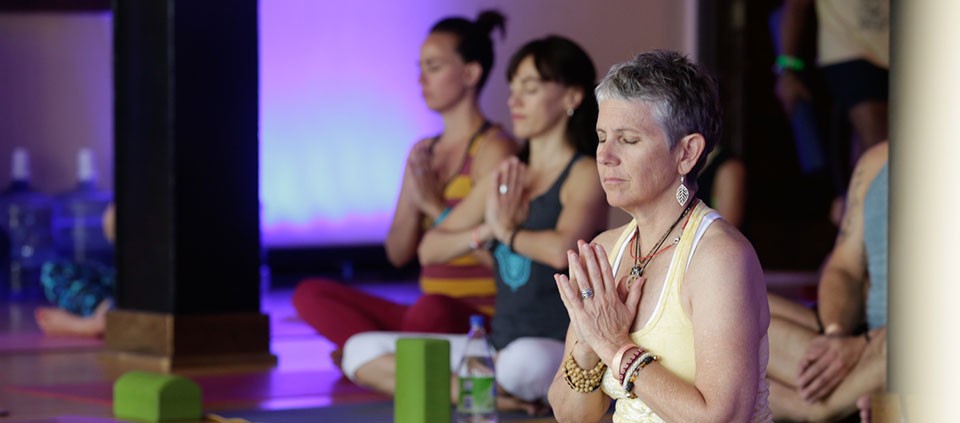The Power of Breath to Ease Suffering

With the recent deaths of Kate Spade and Anthony Bourdain, we are thrown into a reality of suffering that not all of us comprehend. My understanding of their pain is only that of someone who works with those who wish for health. Although I’ve had moments of deep sorrow and periods of depressive, anxious thinking, I’ve never had the experience of losing hope long enough to consider ending my life. Any assumptions I might make about their experience would only be inaccurate, which brings sadness, for only in understanding each other’s experience can we hope to make a difference.
What to consider, then, when those we care for despair? And how might we enable ourselves to heal our own despair, should it arise?
We know that love of others, meaningful work, and accomplishment are sometimes not enough. We know that mental illness can drive despair, even when all seems well from an outside view. We know, too, that wanting to end one’s life sometimes seems like a gift to those we leave behind. A colleague of mine chose to end her life in 2006, and her letter to her daughter spoke of her deep-rooted belief that her daughter’s life would somehow be better without her.
I’m thinking now of a young man named Noah, who came to speak at Kripalu. Noah had been incarcerated as a high school student for aggressive behavior. He had little self-control when angered, yet, in a few short years while in prison, he had earned his way back to freedom and home. He had done so because his mentors at the juvenile delinquent facility had taught him to breathe. To really breathe—to notice when he was agitated, angry, ready to strike. Those breaths created space for him: The space to walk away, to consider his options, and, eventually, to choose another way. “If you want to conquer the anxiety of life,” writes spiritual teacher Amit Ray, “live in the moment, live in the breath.” I might add, if you want to conquer any de-centering state, such as shame, rage, bitterness, fear, or worry, find your breath. Begin there, by developing the habit of bringing breath to each disturbing moment.
Breath nourishes our cells, replenishes our organs, calms our minds, and opens the door to a possible, slightly better next moment. But it alone is not enough. It must be paired with self-compassion; with a thought, however small, that one is okay as one is. In Positive Psychology, we speak of permission to be human, the permission to be fractured and imperfect and still hold worth anyway. As Swami Kripalu said, “The highest form of spiritual practice is self-observation without judgment.” This notion of not judging oneself, of simply noticing what is and moving forward into the next moment, is crucial to well-being. It enables us to both tolerate the consequences of being ourselves and to actually see the wholeness of our being.
Here is what I mean by that: When we move away from judgment and replace it with self-compassion, bringing kind thoughts to our flawed thinking or unskillful behavior, we witness ourselves as both imperfect and benevolent. As we hold both states, we can exist with greater ease in the paradoxes of living. We may be outwardly successful and feel inadequate—and that is okay. We see that we may make mistakes, cause harm—and still know that we can bring goodness. We may fumble, yet we also rise. It is the ability to live with increasing effortlessness in these paradoxes that enables us to feel life-alienating emotions and not listen to them as if they were the only truth available to us.
This all seems so simple, I know. Choose breath. Choose compassion. Develop the habit of noticing when we are upset, and bring breath and kindness to ourselves in those moments. And yet, when caught in a maelstrom, all we can do is take the next step, and the next. , and Reflect on the good that has grown in those moments when you have chosen to pause, breathe, and be kind to yourself. Remember how this practice has enabled you to make wise choices. And consider, perhaps, what it might be like to offer this wisdom to those you care for, who may be suffering as Kate Spade and Anthony Bourdain suffered. These are small choices of behavior, life giving and rooted in love.
***
Conscious breathing, self-observation, and self-compassion can help soothe an anxious mind, but they aren’t cures, nor are they substitutes for seeking professional help. If you or someone you know might be contemplating suicide, please know that you are not alone. Help is available:
National Suicide Prevention Lifeline
To Write Love on Her Arms
American Foundation for Suicide Prevention
Suicide Prevention Resource Center
© Kripalu Center for Yoga & Health. All rights reserved. To request permission to reprint, please email editor@kripalu.org.
Maria Sirois, PsyD, is a positive psychologist and seminar leader who teaches with wisdom, authenticity, and humor at the intersection of resilience and flourishing.
Full Bio and Programs